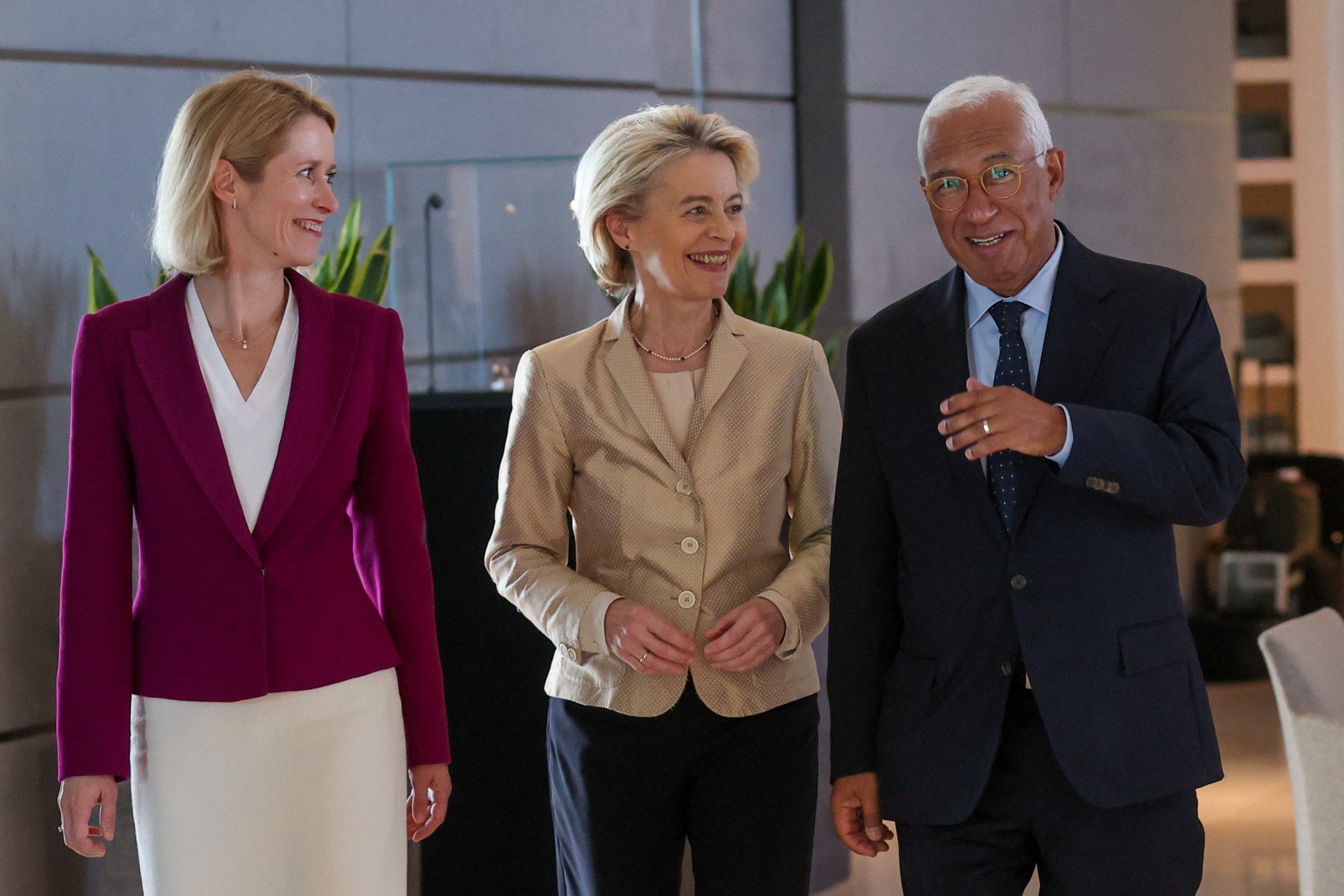Women This Week: Women Positioned to Lead the European Union in Top Jobs
Welcome to “Women Around the World: This Week,” a series that highlights noteworthy news related to women and U.S. foreign policy. This week’s post covers June 22 to June 28.

Ursula Von der Leyen and Kaja Kallas Endorsed by EU Leaders
Women are on track to hold two of the top three European Union (EU) leadership positions. By a two-thirds majority, EU leaders have agreed to endorse European Commission President Ursula von der Leyen for a second five-year term and Estonian Prime Minister Kaja Kallas as the EU’s top diplomat. Antonio Costa, the former prime minister of Portugal, will lead the European Council as president. Far-right politicians, including Italian Prime Minister Giorgia Meloni and Hungarian Prime Minister Viktor Orban, have been vocal critiques of the three nominations. “My aim is definitely to work for European unity, protect European interests,” said Kallas on her new role. Both Von der Leyen and Kallas will have to win the backing of the European Parliament in a secret ballot before their positions are secured.
Sierra Leone Bans Child Marriage in New Legislation
This week, Sierra Leone passed legislation to end child marriage. The Prohibition of Child Marriage Bill 2024 prohibits marriage before the age of eighteen and establishes provisions to enforce penalties on offenders. It also provides educational and support services for young girls who have been victims of child marriage. Thirty percent of girls in Sierra Leone are married before the age of eighteen, and 9 percent are married before fifteen. This new legislation will supersede the 2009 Customary Marriage and Divorce Act, which had permitted child marriage in contradiction of the 2007 Child Rights Act, which had made eighteen the legal age for marriage. Girls are often married young to improve their families’ economic opportunities. Fatou Gueye Ndir from Girls Not Brides said, “This bill and the provision of support services will allow girls to live happily, safely and reach their full potential.”
Protesters in Ireland Urge Tougher Sentencing for Gender-Based Violence
Protesters are taking to the streets in Ireland to demand justice after a soldier who brutally attacked a woman was able to walk free. The active-duty soldier, Cathal Crotty, beat Natasha O’Brien unconscious after she had told him to stop shouting homophobic slurs. Crotty, who was off-duty, reportedly grabbed O’Brien before punching her six times, breaking her nose and giving her a concussion. Crotty initially claimed he had been instigated but later pled guilty after footage of the attack emerged. Protesters have rallied to support O’Brien, who condemned the decision to only give Crotty a three-year suspended sentence, The lack of incarceration for assault cases often deters victims from speaking out. “I was really, really, hoping that I would have been able to set a good example, that when you do something bad you get consequences for it - and instead, our system has shown that it is broken,” O’Brien told BBC Radio.
Mandatory Hijab a Campaign Issue in Iran’sresidential Elections
A law mandating the wearing of a hijab by women was a hot topic in the run-up to Friday’s presidential elections in Iran. The election is being held to fill the vacancy left by former president Ebrahim Raisi, who was killed in a helicopter crash earlier this year. All of the original six candidates—five of them conservative—sought to distance themselves from the methods of enforcing the law, which includes violence, arrests, and monetary fines. Only one candidate, Masoud Pezeshkian—a reformist—openly criticized the hijab law. Others, including current parliament speaker Mohammad Bagher Qalibaf, asked for the law to be implemented in a softer way. Candidate Mostafa Pourmohammadi, a Shiite cleric, criticized the use of violence against women, saying police should use “the language of trust and gratitude” rather than the baton. Iran has been criticized for its brutal methods of enforcing the law, particularly since 2022, when twenty-two-year-old Mahsa Amini was killed while in morality police custody for failing to wear the hijab while traveling in a car with her family.